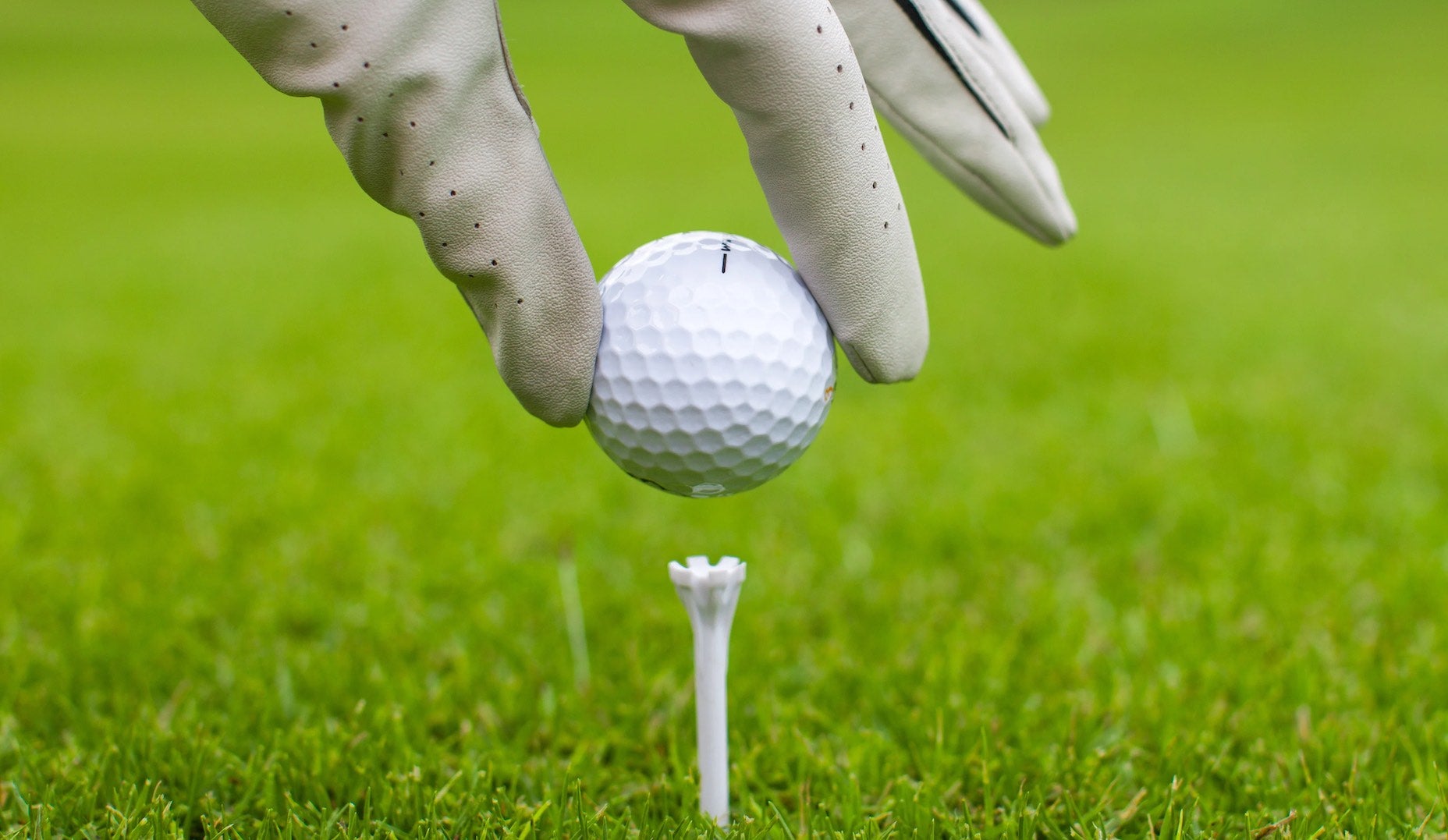Welcome to another edition of the Fully Equipped Mailbag, sponsored by Cleveland/Srixon Golf, an interactive GOLF.com series in which we field your hard-hitting gear questions.
How high should I tee the ball with my driver, fairway wood and hybrid? – Marcus W., Arizona
Tee height is perhaps the most overlooked aspect of a proper setup, and consequently, how high or low you tee the ball can have a huge impact on how the ball flies.
It’s widely agreed upon (and we’ve seen the data to support it) that a higher tee will help many golfers hit longer drives by forcing them to swing up into the ball. And when you have a positive/ascending angle of attack, you’ll also increase your dynamic launch angle and hit it higher with less spin and more carry.
Most golfers tee the ball somewhere at or near 1.5-inches off the turf when hitting a driver, which usually positions the equator of the ball near the top edge of the clubface at address. This height is optimal for most players since it encourages an upward angle of attack and higher ensuing launch angle. There are variances depending on driver model, but bisecting the equator of the ball with the top edge of the face is a good/general rule of thumb.
There are contrarians to that rule, though. For instance, long drive competitors have been known to tee the ball as high as the USGA allows — upwards of 4-inches off the ground to swing up on it and hit the ball as high as they can with minimal spin. But, here’s the rub. How you swing the club plays a huge role in how high you should tee the golf ball. This is especially true if you have a steeper-than-average golf swing.
If you swing down into the ball (there’s data that actually shows PGA Tour players hitting driver with downward angle of attacks, but we’ll save that for a future discussion) teeing the ball higher will lead to more popups and produce some hideous scuff marks on the top edge of your clubhead. Also, added backspin off the tee isn’t always such a bad thing. For slower swingspeeds, more spin can help you hit the ball higher and carry it a little further. And for those of you who need a little more control, a lower tee can help you hit it straighter.
Srixon Q-Star Tour Divide
So, if you have a steep swing, tee it lower and maybe work on swinging less steep before you lift the ball to a higher tee height. If you don’t have trouble nicking the paint on the crown of your driver, try a higher tee setup than you normally do and see if you poke it a few yards further. Bear in mind one more thing. Shots hit lower on the clubface tend to generate more backspin, which unless you have a slow swing speed, can rob you of distance.
On the other hand, shots hit higher on the face tend to spin less, promoting a flatter and more boring (in a good way) launch angle. This is why no matter which way the wind is blowing, you should tee it the same height every time. The last thing you want to do is tee it low into the wind—that’ll add more backspin making the wind in your face an even bigger problem than it ought to be.
Before we advise you on woods and hybrids, it’s worth noting that Srixon’s Q-Star Tour Divide golf balls come with a built-in tee-height gauge. Because the ball is bi-colored in half-and-half portions, the equator of the ball is super easy to see. This makes it a cinch to tee it up the same height every time—just align the top color above the top edge of the driver and the lower half of the ball on the upper section of the clubface.
When hitting from the box with your fairway woods, it’s always better to tee it up because doing so ensures a clean path into the back of the golf ball—unencumbered by any blades of grass or other debris. As for how high, typically you want to tee it with your woods so the ball rests just above the ground—favoring a shallow angle of attack that is slightly ascending into the back of the golf ball. If you happen to play a larger fairway wood, you can maybe tee it a little higher, but remember you run the risk of an occasional popup when you do that.
Finally, you may be inclined to forgo teeing up a hybrid shot based on last week’s mailbag about the need to have a descending angle of attack, but even still, it’s better to heed the advice of the Golden Bear who once said, “Air offers less resistance than dirt.”
What Nicklaus meant was, if given the opportunity give your ball a lift from a tee you should most definitely do it. As for tee height with a hybrid, it’s recommended to tee the ball low to the ground as you would with an iron. You still want to hit down on it, but using a tee will help you hit from the best possible lie you can get.
Want to overhaul your bag for 2022? Find a fitting location near you at GOLF’s affiliate company True Spec Golf. For more on the latest gear news and information, check out our latest Fully Equipped podcast below.
